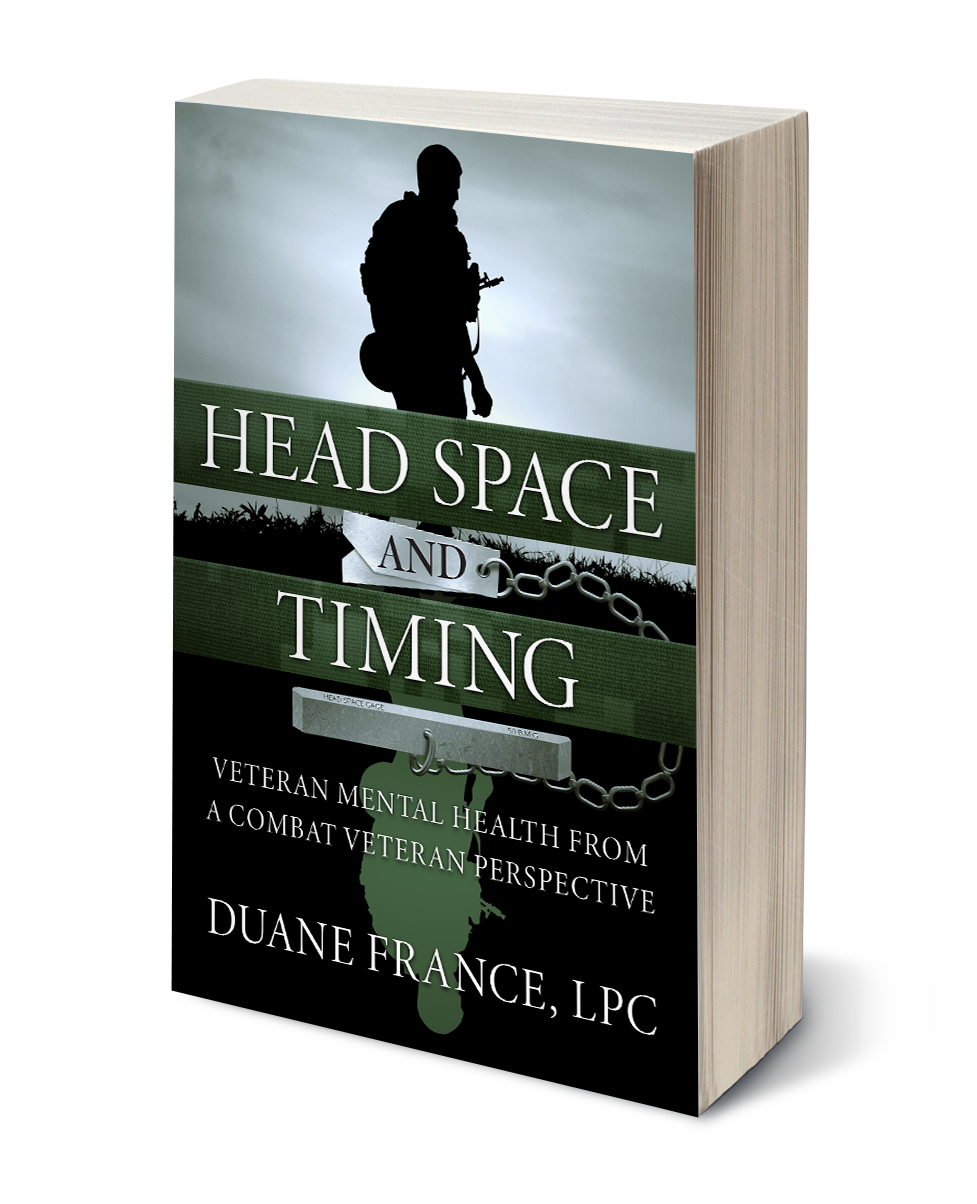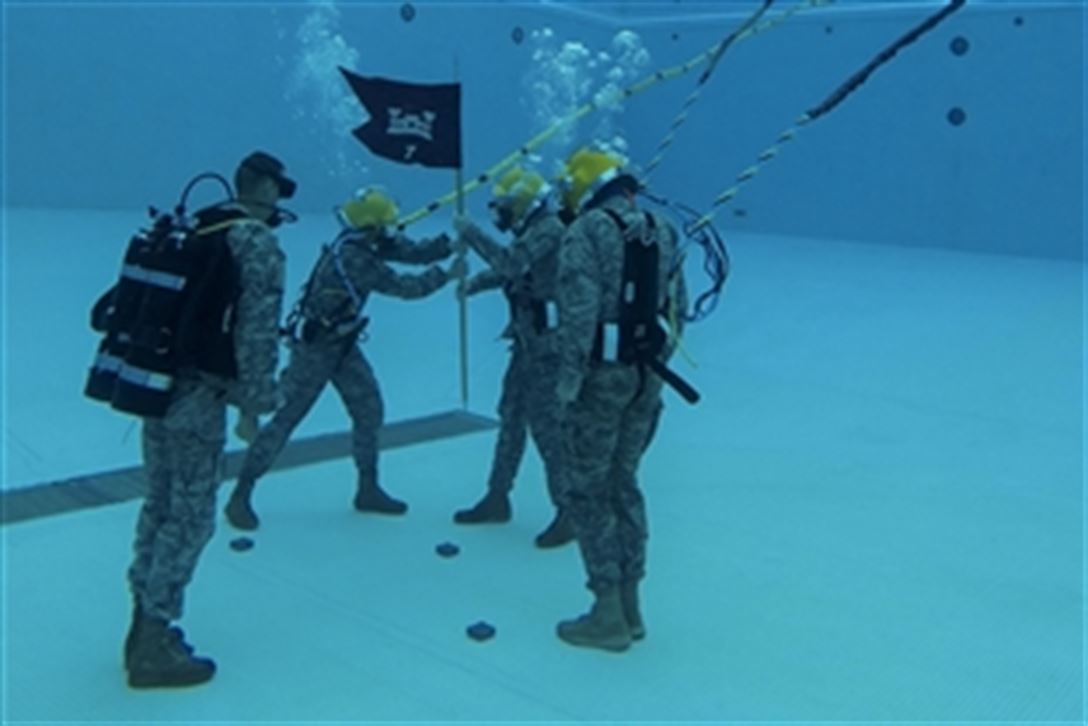
In my work as a clinical mental health counselor, I see a wide range of service members and veterans. Cold War veterans, Post 9/11 veterans, Vietnam and Gulf War vets…I’ve even had the honor of working with a couple of Korean War veterans. All of them, to a person, had some adjustment to post-military life. Some good, some bad. This is “The Transition” that we always talk about, that time between when you were in the military to the point where you think that you might have finally made the full switch.
Some veterans are stuck in between.
I call this in-between time “the tunnel.” It’s a passage way between two different locations, it’s often dark, and it might be filled with obstacles. For some, the tunnel is short…little more than an archway…and the service member has a relatively seamless shift into their post-military life. For others, the tunnel is long. It can be years long, or decades.
The trick is getting through the tunnel any way that we can and out the other side.
Choosing to Stay in the Tunnel
A number of veterans choose to stay in the tunnel. For whatever reason, their military service was the best thing that ever happened to them, and nothing will ever compare. Life is one big downward slide once they leave the military. The step out of the military into the tunnel, turn around…and just sit. If they do walk, they walk backwards, looking at their time in the military with nostalgia and longing. They wish they could get back in, go back to the glory days. As Billy Joel said in the song, though, “The good old days weren’t always good, and tomorrow ain’t as bad as it seems.”
Choosing to stay in the tunnel, focused on the past and locked on to the military with a laser focus, is one way of getting stuck. It’s probably one of the worst ways, because the veteran is choosing to do so. It may not be a conscious choice, and it may be that the choice is being made by not moving forward, but the choice is still there. And change is uncomfortable; if we want to avoid discomfort, the easiest way to do so is to not change. It’s hard to accept that our time in the military is over, sure; but not accepting it doesn’t make it true. Trying to hold on to that stage of our life is denying reality, which is ultimately detrimental.
Being Unable to Navigate the Tunnel
Other veterans do want to leave their military service behind them, but still find themselves stuck in the tunnel, unable to move on. There are barriers and obstacles, it’s dark and confusing. Maybe there are branches in the tunnel that make us think we’re heading in the right direction, only to circle back to where we were. Or hit a dead end. For some veterans, the tunnel can be more like a maze. If they’re not prepared properly for the transition, it can be challenging. Sure, maybe they had someone hand them instructions on navigating the tunnel as they left the military; but maybe the map was drawn by someone who hadn’t really gone through the tunnel themselves. Or the instructions only identified half of the obstacles, and only told us what they were, not how to navigate them.
I’m not trying to push the metaphor too far, here, but it makes sense when I talk about it to veterans. The obstacles in the tunnel are all of the challenges that veterans experience. Adapting to non-military life. Maintaining or readjusting relationships. Figuring out how to meet old needs in new ways. Then there’s some tougher obstacles: maybe we’re carrying some heavy psychological baggage from our time in the military. Maybe we struggle with drinking too much, or try to fill the void with other things that aren’t helpful. Maybe it happens that, no matter how hard we try, we can’t seem to negotiate the obstacles, and we seem like we’re in the tunnel alone.
Making It Through the Tunnel…
At some point, hopefully sooner rather than later, we emerge out the other side of the tunnel. We settle into school or a new career, we start to develop new relationships while keeping the old ones we want. We stop hanging out with just other veterans, or isolating ourselves from everybody, and establish a new post-military life. We’re not civilians…we never will be…but we’re no longer service members. We get engaged in our local community, find things in our lives that satisfy us while helping us care for the ones we love…we have “fully transitioned.”
The military was what we did, maybe even who we were, but is not who we are. We have transformed our identify from service member to veteran, and have gotten to a place where life is good. Not perfect, because it never is, and not always great. If things were always great, then greatness would no longer be special. But we get to the place where we are safe, generally happy for a majority of the time, and satisfied with the service we gave when we were in the military.
…And Going Back In to Help
Then there are those of us, me included, who turn around and go back in the tunnel to help out our fellow veterans. We are still connected to the military affiliated community. Maybe some only go back in the tunnel a little bit, connecting with veteran organizations like the VFW and the Legion, The Mission Continues or Team Rubicon; maybe others go deeper in. The goal is to help those veterans who are struggling to overcome the obstacles in the tunnel. To assist them in navigating the chaos, to be a light shining in the darkness if we can be.
And, maybe, venture all the way back to those who are sitting at the beginning of the tunnel. Maybe we can help them realize how good things can be on the other side.
Do you want to help offset some of the costs of the Head Space and Timing Blog and Podcast? Want to show your appreciation and support? You can put some paper in the tip jar by going here or clicking the button below
 Want to learn more about veteran mental health? The first HS&T Book has recently been released in paperback. Click on the image to the left or this link to purchase the book. See what people are saying about it: This compilation of Duane’s work is key and essential to anyone working with Soldiers and Veterans. Duane provides a senior NCO’s perspective with unmeasurable experience and knowledge on top of his natural gift for seeing numerous levels of humanality and the challenges faced by those who have served our country. I highly recommend it! – A.C.
Want to learn more about veteran mental health? The first HS&T Book has recently been released in paperback. Click on the image to the left or this link to purchase the book. See what people are saying about it: This compilation of Duane’s work is key and essential to anyone working with Soldiers and Veterans. Duane provides a senior NCO’s perspective with unmeasurable experience and knowledge on top of his natural gift for seeing numerous levels of humanality and the challenges faced by those who have served our country. I highly recommend it! – A.C.

